Japanese Region Takes Down Memorial to Korean Slaves
The Gunma Prefecture of Japan last week removed a memorial to Korean victims of Imperial Japan’s forced labor policy during World War II.
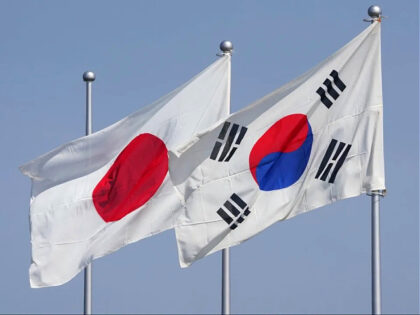
The Gunma Prefecture of Japan last week removed a memorial to Korean victims of Imperial Japan’s forced labor policy during World War II.

A South Korean court ordered Japan to pay compensation to the nation’s “comfort women,” sex slaves abducted during World War II, or their families, in an unprecedented ruling formally protested by Tokyo on Friday.
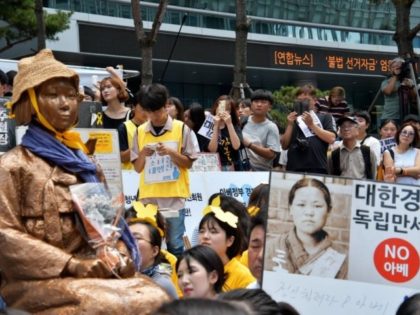
Japanese officials reacted angrily on Tuesday to the construction of a statue in Pyeongchang, South Korea, appearing to depict Japanese Prime Minister Abe Shinzo kneeling and bowing to a seated “comfort woman.”
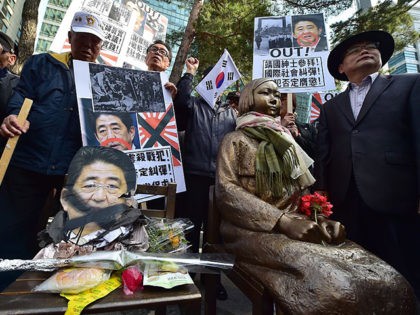
Hong Kong Executive Council adviser Fanny Law Fan Chiu-fun made waves during a radio interview on Monday by claiming young girls are giving free “comfort sex” to Hong Kong protesters to keep them motivated.
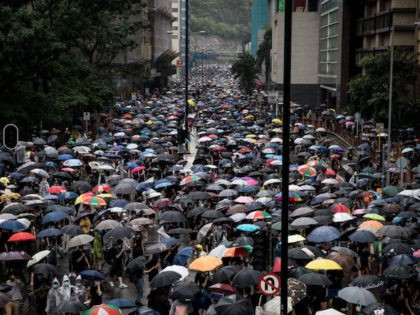
Thursday was the 74th annual Liberation Day in South Korea, commemorating the end of Japanese occupation after World War Two, featured demonstrations denouncing both Japanese Prime Minister Abe Shinzo and South Korean President Moon Jae-in at a time of heightened tensions between the two countries.
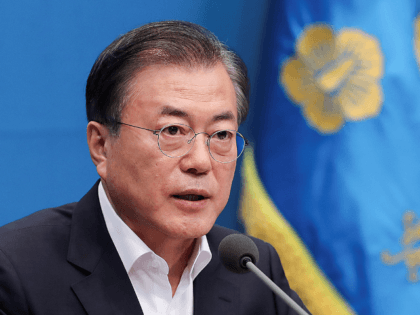
Japanese Prime Minister Abe Shinzo has not visited the controversial Yasukuni Shrine since 2013, but he paid for a ritual offering on Thursday, which was enough to ruffle feathers across Asia. The shrine is seen in Japan as a memorial to peace, and by many other Asian nations as a nostalgic celebration of Japan’s militaristic era.
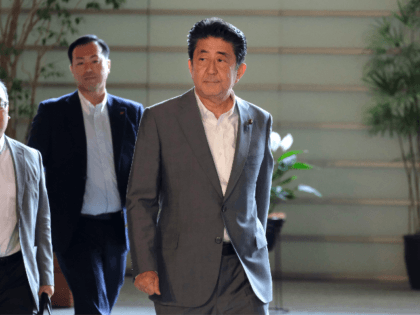
South Korea announced on Monday that it had stripped Japan of its status as a “trusted trading partner” in response to Tokyo’s decision to place export restrictions on its East Asian neighbor.
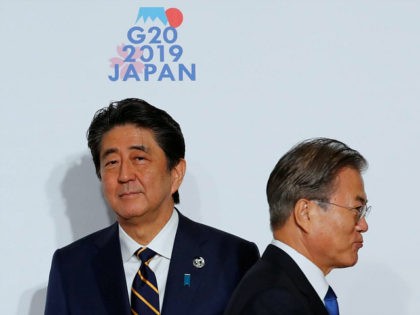
Kim Kyu-jong, a member of the Korean boy band SS501, apologized profusely this week after revealing that he is dating a Japanese woman, outraging South Koreans currently engaging in a boycott campaign against Japan for placing export controls on materials necessary for high-tech manufacturing, the Korea Times reported on Monday.
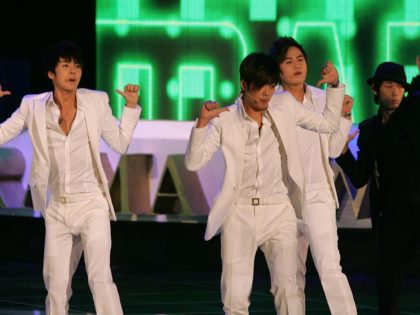
Japanese Prime Minister Shinzo Abe has offered to meet North Korean dictator Kim Jong-un without preconditions, a considerable political risk given Abe’s previous focus on resolving the issue of Japanese citizens kidnapped by North Korea before any such talks could occur. Abe’s softening stance toward North Korea comes as Japanese relations with South Korea are deteriorating due to even older issues that stretch back to World War II.
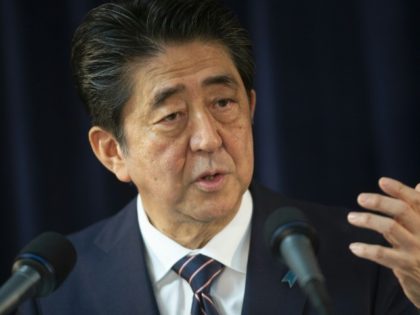
South Korea announced on Wednesday that it will dissolve the “Reconciliation and Healing Foundation,” established by a 2015 agreement with Japan to help the families of “comfort women” abused by Japanese soldiers during the World War II era.
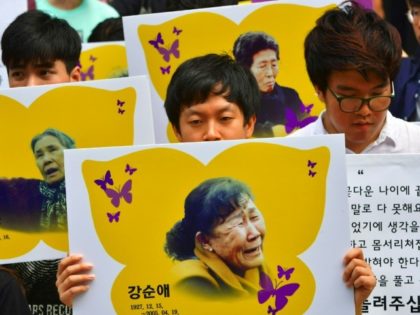
Japan withdrew on Friday from an international naval review scheduled for next week because South Korea asked that Japan not fly the “Rising Sun” flag on its ships. The Koreans see the flag as symbolic of Imperial Japan’s atrocities in World War II, but Japan said its ships are required by law to fly it.
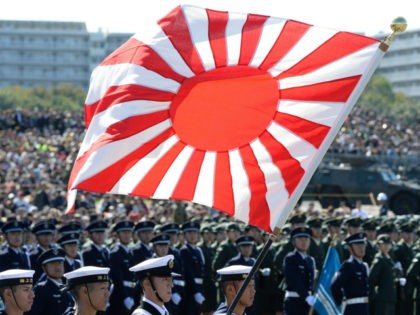
South Korean President Moon Jae-in and Japanese Prime Minister Shinzo Abe met on the sidelines of the U.N. General Assembly in New York City, as world leaders often do. The encounter began on a high note but turned sour with an argument over the “comfort women” issue that has divided South Korea and Japan for many years.
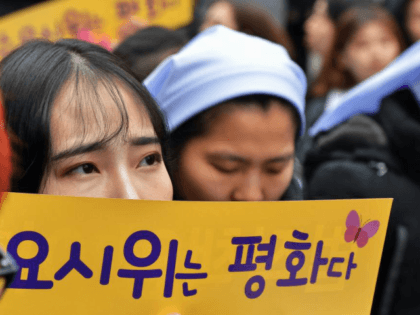
Monuments were opened in both South Korea and Taiwan on Tuesday as a tribute to the “comfort women” forced to work in Japanese military brothels during World War II.
